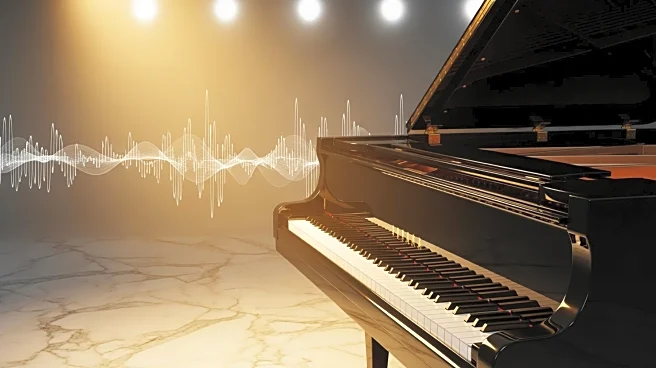What's Happening?
Keith Urban recently performed at a private holiday party hosted by Australian billionaire Anthony Pratt at President Trump's Mar-a-Lago resort. The event featured Urban performing with a small backing band, covering songs such as Chappell Roan's 'Pink
Pony Club' and Bob Marley & The Wailers' 'Is This Love?'. Urban also performed his single 'Messed Up as Me', which previously reached No. 12 on Billboard's Country Airplay chart. The performance has sparked mixed reactions from fans, with some expressing disappointment over Urban's choice to perform at the event. Urban has previously remained neutral regarding his political affiliations, emphasizing his diverse audience.
Why It's Important?
The performance at Mar-a-Lago highlights the intersection of entertainment and politics, particularly when artists engage with politically charged environments. Urban's decision to perform at an event hosted by President Trump may influence public perception of his political stance, despite his previous neutrality. This event underscores the potential impact of celebrity actions on their fan base and public image, especially in politically polarized times. Additionally, the involvement of Anthony Pratt, who pledged significant funds toward American manufacturing, ties the event to broader economic discussions.
What's Next?
The reactions to Urban's performance may prompt further discussions about the role of artists in political settings and their influence on public opinion. Urban's representative has not commented on the performance, leaving room for speculation about his future engagements and potential clarifications regarding his political views. The event may also lead to increased scrutiny of celebrity involvement in politically significant events, influencing how artists navigate their public personas.
Beyond the Headlines
Urban's performance at Mar-a-Lago could have deeper implications for the entertainment industry, particularly regarding the ethical considerations of performing at politically charged venues. The event raises questions about the responsibilities of artists in maintaining neutrality or expressing political views, and how these choices affect their careers and public perception. The involvement of Anthony Pratt, a major figure in the manufacturing industry, also highlights the intersection of business interests and political events.















